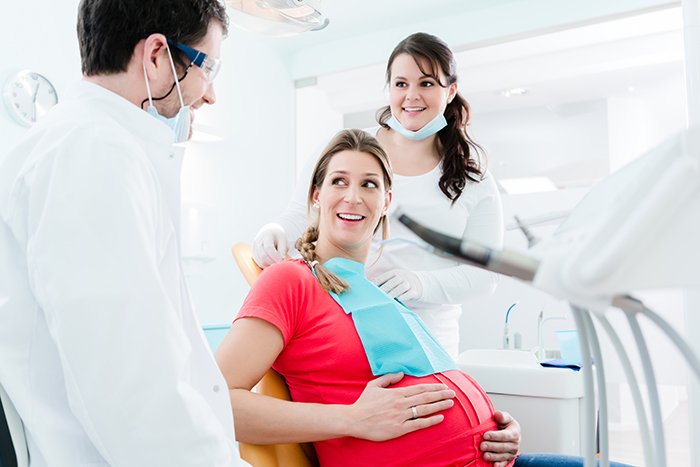COMMON ADULT QUESTIONS – PART 1/4
June 24, 2019

Isn’t tooth loss inevitable in the later years?
Today, older adults are keeping their natural teeth longer because of scientific developments and the preventive emphasis in dentistry. This improvement was seen in the results of a survey released by the National Institute of Dental and Craniofacial Research. They showed that among persons aged 55 to 64, the rate of toothlessness dropped 60 percent since 1960.
Good oral hygiene and regular dental care are important throughout your life, whatever your age. By practicing good oral hygiene at home and visiting your dentist regularly, you will prevent dental problems and save time and money as well.
There are two things that cannot be disputed when it comes to oral health:
- Quality of life is better with a healthy mouth full of teeth
- Your mouth is the gateway to the rest of your body. If you care about being healthy, you should take the steps necessary to have optimum dental health
At my age, why should I bother with oral hygiene and going to the dentist?
Thorough daily brushing and flossing of your natural teeth are essential to keep them in good condition—especially as you age. Plaque, the sticky, colorless layer of bacteria that causes tooth decay and periodontal (gum) disease, can build up quickly on the teeth of older adults, particularly when they neglect oral hygiene. This can increase your risk for tooth decay and periodontal disease.
A few simple steps can help you maintain good oral health throughout your life. Brush your teeth twice a day with a fluoride toothpaste, and clean between your teeth daily with floss or interdental cleaners. Be sure to see your dentist regularly for exams and professional teeth cleaning. Professional monitoring of your oral health status is essential.
Should adults be concerned about cavities?
Tooth decay is not just a child’s problem. Adults of all ages can have cavities. The causes for tooth decay are the same for everyone, regardless of age. Decay results when the bacteria in plaque feed on the carbohydrates (sugar and starch) in our diet to produce acids that can cause cavities.
Decay rates can change throughout our lifetime for various reasons. Adults are more likely to have decay around older fillings or other dental work. Decay of the tooth root is also common among older adults. Root caries (decay) occur when the gums recede, exposing the softer root surface, which decays more easily than tooth enamel.
Tooth decay is also promoted by dry mouth. This condition, called xerostomia, occurs when the supply of saliva is greatly reduced. It can be caused by many types of medications (such as anti-histamines, anti-hypertensives, and anti-depressants) or radiation therapy to the head or neck. Saliva is needed to lubricate the mouth, wash foods away and neutralize the acids produced by plaque.
Allowed to continue, dry mouth can lead to rampant tooth decay. If you think you have this problem, be sure to discuss it with your dentist or physician. They may recommend a saliva substitute and/or fluoride products to help prevent decay.
….to be continued
Dr. St. Clair maintains a private dental practice in Rowley and Newburyport dedicated to health-centered family dentistry. If there are certain topics you would like to see written about or questions you have please email them to him at jpstclair@stclairdmd.com. You can view all previously written columns at www.jpeterstclairdentistry.com/blog.
ATTENTION ATHLETES
June 17, 2019

I was at a continuing education seminar last week and one of the topics being discussed was mouthguards. Although it seems basic, and you would think that everyone who should be wearing one does, this is far from the case. I still see far too many sports related dental injuries in every season which could have been prevented.
Any sport that presents the chance of contact or collision with another person, object, or surface can potentially cause injury to teeth, jaws, and oral soft tissue. These sports include, but are not limited to, football, baseball, basketball, soccer, hockey, field hockey, pond hockey, boxing, lacrosse, biking, inline skating, and skateboarding.
Teeth get in the way. Other than your nose, front teeth are “out there” and your lips only provide minimal protection. For example, a student I saw this past spring from a local private school was playing squash. Squash is a non-contact sport but the game is played in close proximity to another player with a swinging racquet. The student I treated had been hit in the mouth with the other player’s racquet. He required a root canal on one front tooth and a crown. The other front tooth needed to be extracted and replaced with a dental implant. All of this could have been prevented with a mouthguard.
A custom mouthguard made by your dentist covers the upper teeth with a soft, flexible material that can prevent many injuries. It decreases the chance of the lower jaw jamming into the upper jaw or being pushed back into the temporomandibular (jaw) joint. Mouthguards may reduce the severity and incidence of concussions as well.
Custom mouthguards, made by a dentist, fit 100 times better than anything you can buy in a store. This not only improves performance (making it easier to breathe), but also makes it more likely the athlete will keep the mouthguard in.
Custom-made mouthguards may be a little more expensive than over-the-counter versions, but they are far superior, and that is enough reason to consider them. Inform your dentist if you or your child participates in sports or recreational activities. Because mouth injuries can be painful, costly, and life-changing, it is recommended that all athletes take preventative measures at all times.
At my seminar this past week the presenter noted that injury to the teeth from sport injuries creates life-long issues that can run in the 10’s of thousands of dollars to maintain over a lifetime. The $100 or so that it costs to have a well-fitting custom guard made, that will be worn more often because it fits well, is worth every penny. It kills me to see children and adults come in with injuries to their once beautiful front teeth. The best dentistry is no dentistry because even the best dentistry needs to be maintained and/or replaced, sometimes multiple times over a lifetime.
Even if it isn’t “cool” to wear a mouthguard in the sport you are playing, strongly consider it anyway. You only get one set of your own teeth. Custom guards can be made with fancy colors and designs. You never know, you may start a trend….and who cares what other people think; these are your teeth!
Dr. St. Clair maintains a private dental practice in Rowley and Newburyport dedicated to health-centered family dentistry. If there are certain topics you would like to see written about or questions you have please email them to him at jpstclair@stclairdmd.com. You can view all previously written columns at www.jpeterstclairdentistry.com/blog.
INFO FOR NEW MOMS
June 10, 2019

The key to a child’s good dental health begins before his or her teeth become visible. Here are some answers to some of the most frequently asked dental health questions relating to pregnancy, infants, toddlers and children.
1. Does being pregnant affect my oral health? Yes… hormonal changes exaggerate the way gum tissues react to the irritants in plaque. Thorough brushing and flossing of your teeth twice daily to remove the plaque and eating a balanced diet will help to keep your gums healthy.
2. Should I visit my dentist during my pregnancy? Yes… you should continue regular dental visits. However, it is very important to let your dentist know that you are pregnant. You may be asked to be seen more frequently.
3. Are x-rays safe during pregnancy? Yes… x-rays are safe during pregnancy and are a vital tool used in helping to detect dental and other oral health problems. Only the x-rays that are necessary for treatment will be taken. You will be asked to wear a lead apron for extra protection.
4. When will my infant begin to get teeth? Tooth eruption varies from infant to infant. However, most infants will start to get teeth around six to 12 months of age.
5. When should I begin to brush my infant’s teeth? Starting at birth, clean your infant’s gums with a soft infant toothbrush, cotton gauze, or cloth and cool water. For infants under two years of age, parents should consult their child’s dentist before introducing a fluoride toothpaste.
6. How much fluoridated toothpaste should I use when brushing my child’s teeth? Beginning at 2 years of age, a pea-sized amount of fluoridated toothpaste should be used during brushing. Children should be encouraged to spit, not swallow, toothpaste, and the amount of toothpaste used can be increased after five or six years of age when the child can reliably do this.
7. When should I take my baby in for his/her first dental visit? This varies among practitioners. Consult your family dentist. In the meantime, look into the child’s mouth on a regular basis to make sure you don’t see anything unusual.
8. How can I prevent my infant from getting early decay, know as early childhood caries or baby bottle tooth decay? When placing your infant down to sleep (nap or nighttime), place only water in the bottle. Sugary liquids like formula, breast milk, juice and soda can pool around the infant’s teeth and cause decay. Don’t forget to clean or brush your infant’s gums/teeth twice daily to remove food and plaque.
9. What else can I do to keep my child’s teeth healthy? Children are not born with the bacteria that cause decay. They are exposed to these bacteria from their caregivers, especially their mothers. By keeping your teeth healthy and free from decay, you can help reduce your child’s exposure to these bacteria and reduce the chances of early decay.
10. What can I do to help my baby through teething? Many babies like a teething ring, cool spoon, or cold wet washcloth. Some parents/care providers rub their infant’s gums with a clean finger.
Dr. St. Clair maintains a private dental practice in Rowley and Newburyport dedicated to health-centered family dentistry. If there are certain topics you would like to see written about or questions you have please email them to him at jpstclair@stclairdmd.com. You can view all previously written columns at www.jpeterstclairdentistry.com/blog.
The Value of Finding the Right Dentist for the Entire Family
June 5, 2019

Summer is here, and that means it’s time to hit the roads or airways for vacation time with your family. Before you head out for some fun in the sun, though, has everyone received a dental checkup? If not, then now is the perfect time to have it done. Therefore, you can rest assured that your entire family will have beautiful and healthy teeth to display in any photos, and it also helps to avoid an unwanted dental emergency. Read on to discover how working with one trusted dentist can make life so much easier!
(more…)THE LINK – PART 3/3
June 3, 2019
If you missed Part 1 and/or 2 of this series, you can find it at www.thetowncommon.com.

I have been writing the past couple weeks about the growing evidence that links oral and systemic disease, and the need for more collaboration between dentists and physicians. All of this, of course, is in the best interest of the patient.
The discussion has been primarily about gum disease and its relationship with systemic disease. The body is a complex system – and everything is connected. In addition to the need for dentists and MD’s to collaborate more on the oral/systemic connection, we also need to collaborate better about our patient’s sleep problems.
Since I have taken an interest in screening for, and treating some sleep problems, it amazes me how many people have issues with their sleep. It amazes me even more when I learn that many of these people have never even had a conversation with their doctor about sleep. However, according to experts in sleep medicine, there is room for expansion of knowledge amongst dentists and many physicians about the various types of sleep issues.
Periodontal issues and sleep are just two areas where more information should be shared between dentists and physicians. We have to be open to the fact that everything is connected and needs to be taken into consideration when we are trying to diagnose, monitor, or solve our patient’s problems.
For example, I had a patient in last week who has been a patient of mine for about 7 years. I noticed in the patient’s notes that bruxism/grinding had been discussed at most hygiene appointments in the past, due to the noticeable wear patterns on the patient’s teeth. There was also a quote in the notes several times stating that the patient would never wear a dental appliance at night.
As I did my exam I kept thinking to myself that there must be more to the story behind this patient’s dental issues. It happened to be around our lunch break, so I asked the patient if she had a few minutes for us to talk. She seemed interested in what I had to say. I photographed her teeth to compare them with photos taken 7 years ago. We talked for an hour.
Aside from learning that the patient was on 7 medications for the past SEVEN years and had never reported any of them to us, I also learned that the reason she was also resistant to wearing something to protect her teeth at night was because she had sleep issues. She felt there was no way she could handle the extra stuff in her mouth. I also learned that both of her parents are treated for sleep apnea.
So, here are some bullet highlights from the past 3 weeks:
- Periodontal (gum) disease is bad. Just because it doesn’t hurt doesn’t mean you don’t have a problem. If you care about your general health, you must take care of your mouth.
- Delaying care of dental problems always leads to more treatment and more cost.
- Don’t leave information out when discussing your health with your doctors. Everything is important.
- For better patient care, doctors and dentists should have more collaboration.
- Time is the most precious gift a health care provider can give their patients.
Dr. St. Clair maintains a private dental practice in Rowley and Newburyport dedicated to health-centered family dentistry. If there are certain topics you would like to see written about or questions you have please email them to him at jpstclair@stclairdmd.com. You can view all previously written columns at www.jpeterstclairdentistry.com/blog.







